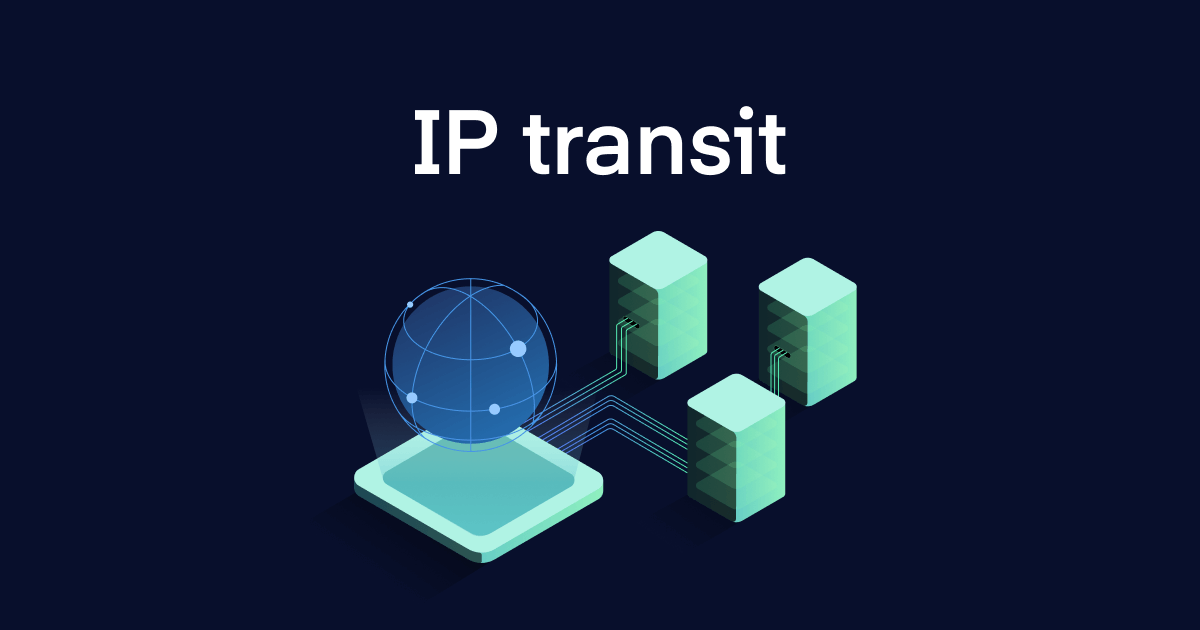All businesses rely on IP Transit to gain access to the world of digital. IP Transit is the core for modern communications networks. It is the power behind everything from cloud-based services to eCommerce platforms. In this post, we’ll examine the basics of IP transit, the role of IP transit providers, the variety of services they provide and how businesses can navigate IP transit costs and pricing.

IP transit, commonly referred to as internet transit, is the process that allows network traffic to traverse or “transit” the network, allowing users to connect to internet. IP transit service providers enable the connection by owning and running the infrastructure needed to transfer data across networks. These providers are essential in giving consumers and businesses reliable internet connectivity.
There are a variety of options for businesses in the field of IP Transit service. Some providers provide basic transit services, which allow access to the Internet without any modifications or extra features. Other providers provide advanced services like managed IP Transit, which comes with monitoring, support for additional devices and security features. The kind of service you select will depend on the needs and demands of your business.
Pricing is one of the most important factors in the selection of the best service provider. Prices for IP transit could be influenced by factors such as bandwidth requirements, geographic location, and service-level agreements. Understanding the different pricing plans and cost structures offered by different providers is essential for companies to make educated decisions and be sure that they are getting the greatest value for their money. For more information, click IP Transit Costs
In addition to the cost, businesses should also consider the reliability and performance of the IP transit provider. Carriers-grade networks with 100G or 400G backbone connectivity can provide the scalability, reliability and reliability that are required to provide mission-critical services and applications. Automating the entire process from beginning to finish boosts efficiency, and offers users with a seamless experience.
Businesses looking to streamline their network connectivity, IP Access provides a completely adaptable and customizable solution. This solution to connectivity is ideal for companies that have older installations or certain needs. With features such as IPv4/31 transfer networks and IPv6/127 as defaults, companies can modify their connectivity to meet their needs, without the complexity of BGP sessions.
IP-Access, in relation to the internet, also offers the basic DDoS (Distributed Denial of Service) protection against volumetric attacks. This provides an additional layer of security to enterprises and their networks. This protection will help guard against potential revenue loss and downtime due to cyber threats.
Inter.link Portal is a simple and efficient way for businesses of all sizes to connect to IP Transit service. Businesses can set up IP Transit in a matter of minutes with a few clicks. Choose their preferred location, bandwidth requirements as well as the speed of port connections and contract length. This simplifies the process, saving time and resources. Businesses can then focus on their core business.
IP Transit is crucial to the modern internet. It allows companies to connect to, collaborate and communicate with other businesses across the world. Companies can make better decisions by being aware of IP transit fundamentals, IP transit providers’ roles, services offered and their pricing. IP transit is a must for modern communication networks. It’s used to access cloud services, power e-commerce platforms or connect remote offices.